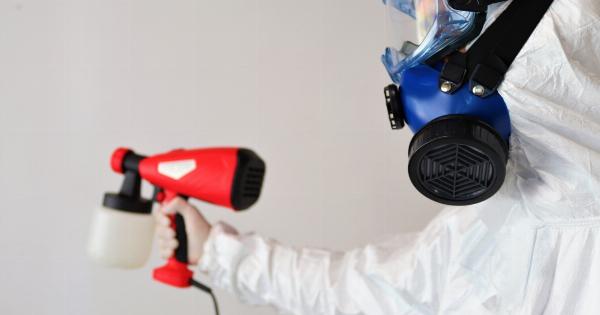Sleep is an essential aspect of our overall well-being, and the environment in which we sleep can greatly impact the quality and quantity of our rest.
From eliminating distractions to optimizing comfort, creating a healthy bedroom setting is crucial for achieving optimal sleep. In this article, we will explore ten key factors to consider when setting up a sleep-friendly bedroom.
1. Choose a Comfortable Mattress and Pillow
A comfortable and supportive mattress and pillow are crucial for promoting healthy sleep. It is important to invest in a high-quality mattress that suits your individual needs and preferences.
Consider factors such as firmness, materials used, and mattress size before making a purchase. Similarly, choose a pillow that provides adequate support for your head and neck to ensure a restful sleep.
2. Opt for Breathable Bedding
Bedding materials that are breathable and moisture-wicking can contribute to a healthy sleep environment. Natural fibers like cotton and linen allow air circulation and can keep you cool and comfortable throughout the night.
Avoid synthetic materials that trap heat and moisture, leading to discomfort and disrupted sleep.
3. Control the Room Temperature
The ideal bedroom temperature for sleep varies from person to person, but it is generally recommended to keep the room slightly cool, between 60 and 67 degrees Fahrenheit (15 to 19 degrees Celsius).
Experiment with different temperatures to find what works best for you. A fan or air conditioner can help regulate the room temperature and improve sleep quality.
4. Block Out Excessive Light
Excessive light exposure can disrupt sleep patterns, as it interferes with the body’s natural circadian rhythm. Invest in blackout curtains or blinds to block out external light sources, such as streetlights or early morning sunlight.
If necessary, wear a sleep mask to completely eliminate any remaining light disturbances in your bedroom.
5. Reduce Noise Levels
Noise can be a major barrier to good sleep. Unwanted sounds from traffic, neighbors, or household appliances can disturb your sleep and prevent you from entering deeper sleep stages.
Consider using earplugs or a white noise machine to mask unwanted noise and create a peaceful sleep environment.
6. Minimize Electronic Devices
Electronic devices emit blue light that can interfere with your sleep-wake cycle. The blue light suppresses the production of melatonin, a hormone that regulates sleep.
Avoid using electronic devices, such as smartphones, tablets, or laptops, at least one hour before bedtime. Instead, engage in relaxing activities like reading a book or practicing meditation to prepare your mind and body for sleep.
7. Create a Clutter-Free Environment
A cluttered bedroom can contribute to a cluttered mind, making it difficult to relax and unwind before sleep. Keep your bedroom tidy and organized by removing unnecessary items from surfaces and storing belongings in designated storage spaces.
A clean and neat environment promotes relaxation and contributes to a healthier sleep routine.
8. Establish a Bedtime Ritual
Establishing a consistent bedtime ritual can signal to your body that it is time to wind down and prepare for sleep. Engage in relaxing activities such as taking a warm bath, practicing gentle stretching or yoga, or listening to calming music.
A consistent routine helps train your body to associate specific actions with sleep, making it easier to fall asleep and enjoy a restful night.
9. Introduce Soothing Scents
Using calming scents in your bedroom can create a serene atmosphere that promotes relaxation and sleep. Essential oils like lavender, chamomile, and jasmine can have soothing effects and help calm the mind.
Consider using a diffuser or linen spray to introduce these scents into your bedroom environment.
10. Incorporate Plants for Improved Air Quality
Indoor air pollution can negatively impact sleep quality and overall health. Certain plants, such as snake plants, peace lilies, and ferns, can help improve air quality by filtering out toxins and releasing oxygen.
Keep a few houseplants in your bedroom to enhance the air quality and create a calming, natural environment.



























